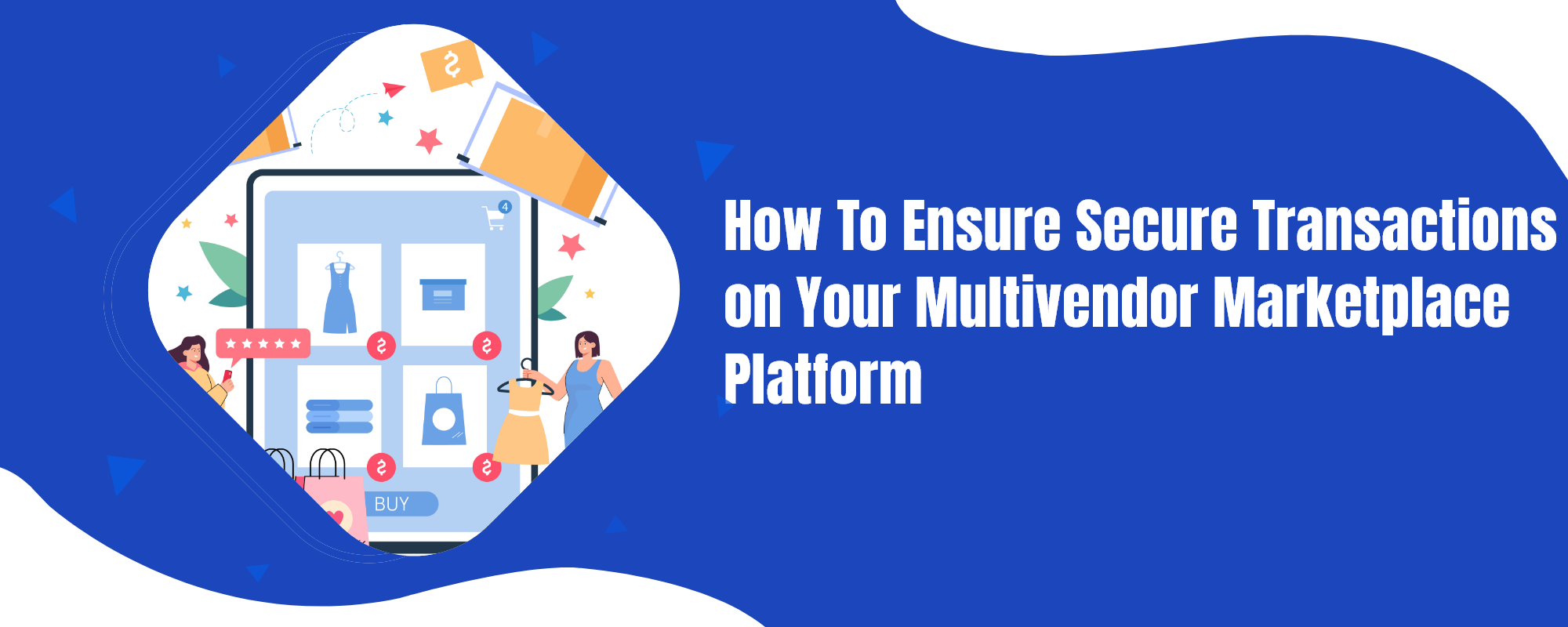Multivendor marketplaces are becoming increasingly popular amongst businesses and entrepreneurs as they provide a platform for multiple vendors to sell their products or services online. These marketplaces allow vendors to create their own storefronts on the platform and manage their sales and inventory. However, with multiple vendors come numerous transactions, making it essential to ensure secure transactions on the platform.
In today’s fast-paced digital world, the importance of secure transactions on your multivendor marketplace cannot be overstated. The rise of multivendor marketplaces has only added to the complexity of ensuring that transactions are not only seamless but also safe for both buyers and sellers. Whether you’re a marketplace owner, vendor, or shopper, this article is an essential read for anyone looking to navigate the intricate landscape of secure payment processing.
Importance of secure transactions on a multivendor marketplace
The success of ecommerce platforms depend on secure transactions on your multivendor marketplace. It is crucial to keep the customers’ and vendors’ information and data safe from any unauthorized access. If customers’ information is compromised, they may lose trust in the platform, leading to a decrease in sales and revenue. Additionally, if vendors’ information, such as their bank details or sales data, is compromised, it can lead to financial losses and legal issues. Therefore, ensuring secure transactions is essential for the long-term success of a multivendor marketplace.

Understanding payment solutions for marketplaces
Payment solutions for marketplaces refer to the software and technology that enables secure transactions on your multivendor marketplace between customers and vendors. These solutions include payment gateways, payment processors, and merchant accounts, amongst others. Payment solutions are essential for the smooth functioning of a multivendor marketplace as they allow customers to pay for their purchases and vendors to receive payments for their sales.
Read more: The Role of Payment Processing in Multivendor Marketplace Platform
Types of payment gateways for marketplaces
Payment gateways are the software that connects the multivendor marketplace to the bank or financial institution that processes the payments. They ensure secure transactions on your multivendor marketplace platform. There are two types of payment gateways for marketplaces – shared and split payment gateways. Shared payment gateways allow all the payments to be processed through the marketplace’s account, and the funds are then distributed to the vendors. Split payment gateways allow the payments to be split between the marketplace and vendors, with the marketplace’s commission being deducted before the funds are transferred to the vendor.
Factors to consider when choosing a payment gateway for your multivendor marketplace
Choosing the right payment gateway for your multivendor marketplace is crucial for the security of transactions and the success of your platform. When selecting a payment gateway, keep these things in mind:
Security – Ensure that the payment gateway you choose is secure and meets the industry standards for encryption and data protection.
Integration – The payment gateway should be easy to integrate with your multi-vendor marketplace platform.
Fees – Consider the fees charged by the payment gateway, including transaction fees, setup fees, and monthly fees.
Customer support – Choose a payment gateway that provides excellent customer support, as you may need assistance during setup and any issues that may arise.
Payment processing on your multivendor marketplace platform
Payment processing on a multivendor marketplace involves various steps, including authorization, capture, settlement, and chargeback. Authorization refers to the process of verifying the customer’s payment information and ensuring that they have sufficient funds to complete the transaction. Capture refers to the process of transferring the authorized funds from the customer’s account to the merchant’s account. Settlement refers to the process of transferring the funds from the merchant’s account to their bank account. Chargeback occurs when a customer disputes a transaction, and the funds are returned to their account.
Best practices for secure transactions on your multivendor marketplace
Here are some best practices to ensure secure transactions on your multivendor marketplace:
SSL Certificate – Ensure that your multivendor marketplace has an SSL certificate to encrypt the data and protect it from any unauthorized access.
PCI compliance – Ensure that your platform is PCI compliant to meet the industry standards for data security and protection.
Two-factor authentication – Implement two-factor authentication for all logins to ensure that only authorized personnel can access the platform.
Fraud prevention – Implement fraud prevention measures such as address verification, IP tracking, and fraud detection tools to prevent fraudulent transactions.
Read more: How to Choose the Right Multi-Vendor Marketplace Platform for Your Business
Common payment frauds and how to prevent them
Payment frauds are common in multivendor marketplaces and can lead to financial losses and legal issues. Here are some common payment frauds and how to prevent them:
Chargeback fraud – Chargeback fraud occurs when a customer disputes a transaction, leading to the funds being returned to their account. To prevent chargeback fraud, implement fraud detection tools and address verification.
Identity theft – Identity theft occurs when a fraudster steals a customer’s identity and uses it to make fraudulent purchases. To prevent identity theft, implement two-factor authentication and IP tracking.
Friendly fraud – Friendly fraud occurs when a customer disputes a transaction even though they made the purchase. To prevent friendly fraud, implement detailed terms and conditions, and provide excellent customer support.
Payment disputes can arise in a multivendor marketplace, leading to legal issues and financial losses. It is essential to have a dispute resolution process in place to address any payment disputes. The process should include a clear policy for refunds, returns, and chargebacks. Additionally, it should include a mediation process to resolve any disputes between customers and vendors, thereby ensuring secure transactions on your multivendor marketplace.
Payment gateway integrations for your multivendor marketplace
Payment gateway integrations are essential for the smooth functioning of a multivendor marketplace. When choosing a payment gateway, ensure that it can be easily integrated with your platform. Additionally, consider the types of payment methods it supports, such as credit cards, debit cards, and e-wallets.
In conclusion, secure transactions on your multivendor marketplace are very important for successful working. It is essential to choose the right payment solutions and implement best practices to ensure the security of transactions. Additionally, having a dispute resolution process in place can prevent legal issues and financial losses. By following these guidelines, you can protect your business and customers and ensure the long-term success of your multivendor marketplace.










